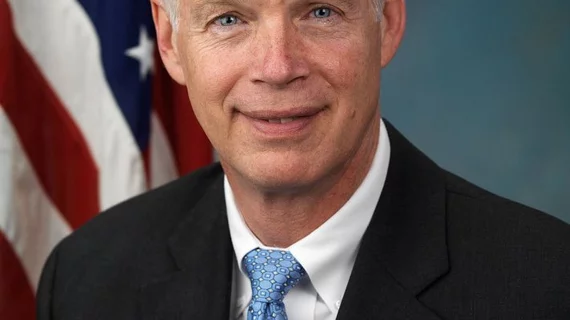‘Right-to-try’ sponsor: Law is meant to diminish the FDA’s power
With his ‘right-to-try’ legislation now law, Sen. Ron Johnson, R-Wisconsin, took issue with some comments from the head of the Food and Drug Administration (FDA) and spelled out what his intent was with allowing terminally ill patients access to experimental treatments outside the existing FDA compassionate use process.
In a letter to FDA Commissioner Scott Gottlieb, MD, Johnson pointed to several statements Gottlieb made about the legislation. Gottlieb seemed to suggest additional guidance and regulation would be needed to balance access to experimental drugs with protecting patients while still adhering to the new law.
Johnson said if Gottlieb intends to limit the reach of the law through new FDA rules, that would go against his intent in writing the legislation.
“This legislation is fundamentally about empowering patients to make decisions in cooperation with their doctors and the developers of potentially life-saving therapies,” Johnson wrote. “This law intends to diminish the FDA’s power over people’s lives, not increase it. It is designed to work within existing FDA regulations, definitions, and approval processes. It is not meant to grant FDA more power or enable the FDA to write new guidance, rules, or regulations that would limit the ability of an individual facing a life-threatening disease from accessing treatments.”
Johnson went on to clarify the law rejected using the FDA’s definition of what patients the law applies to, instead using individual states’ standard of who has a “terminal illness.” It also forbids HHS from using results from a right-to-try patient’s use of an experimental treatment to delay or reject that drug’s approval “unless use of that clinical outcome is critical to determining safety.”
He ended the letter asking to meet with Gottlieb to discuss the law’s intent and the FDA’s plans to implement it accordingly.
The comments from Johnson would back up arguments from opponents of the law about its true intent. Advocates had painted it as a way to bypass bureaucracy at the FDA and gainer faster access to drugs which could potentially save the life of a dying patient. Most states had already passed similar laws before Johnson’s legislation was signed by President Donald Trump.
Opponents, however, had concerns about the impact on patient safety by circumventing the FDA approval process, as well as arguing the law was both unnecessary and deceptive. The FDA already approves 99 percent of compassionate use requests, though advocates say it does so too slowly, and the small number of requests which are rejected have usually been due to the drug companies denying access—which they can still do under the right-to-try law.

